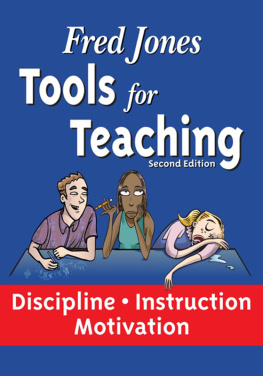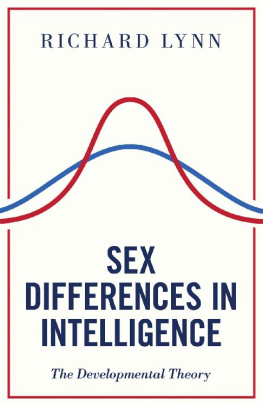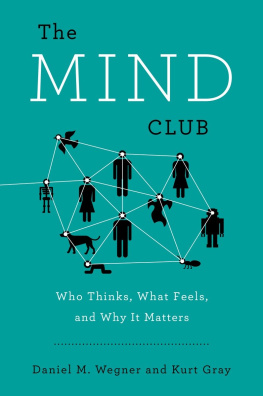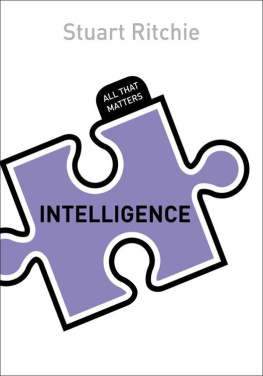Stanford University Press
Stanford, California
2016 by the Board of Trustees of the Leland Stanford Junior University.
All rights reserved.
No part of this book may be reproduced or transmitted in any form or by any means, electronic or mechanical, including photocopying and recording, or in any information storage or retrieval system without the prior written permission of Stanford University Press.
Special discounts for bulk quantities of titles in the Stanford Economics and Finance imprint are available to corporations, professional associations, and other organizations. For details and discount information, contact the special sales department of Stanford University Press. Tel: (650) 736-1782, Fax: (650) 736-1784
Printed in the United States of America on acid-free, archival-quality paper
Library of Congress Cataloging-in-Publication Data
Jones, Garett, author.
Hive mind : how your nations IQ matters so much more than your own/Garett Jones.
pages cm
Includes bibliographical references and index.
ISBN 978-0-8047-8596-9 (cloth : alk. paper)
1. Intelligence levelsEconomic aspects. 2. Intelligence levelsPolitical aspects. I. Title.
BF431.J596 2015
153.9dc23
2015021620
ISBN 978-0-8047-9705-4 (electronic)
Designed by Bruce Lundquist
Typeset at Stanford University Press in 11.75/16 Baskerville
HIVE MIND
How Your Nations IQ Matters So Much More Than Your Own
Garett Jones
STANFORD ECONOMICS AND FINANCE
An Imprint of Stanford University Press
Stanford, California
The area which I am about to enter is one that excites a great deal of emotional feeling; nevertheless it is worth examining.
GORDON TULLOCK, THE ROOTS OF CONFLICT
CONTENTS
FIGURES
ACKNOWLEDGMENTS
Without the expertise of my childhood friend, psychologist W. Joel Schneider, this book would not exist. A few years after finishing some work on how the Federal Reserve influences short-term interest rates, I was casting about for a new research direction. Joel mentioned that a new dataset had just been created, the first large one of its kind, one that assembled IQ tests from around the world to create rough estimates of something called national average IQ for dozens of countries. The authors had run some preliminary statistical tests showing that these test scores predicted a nations economic performance. Joel suggested that since economists were experts at cross-country economic comparisons and psychologists were experts at IQ testing perhaps there was room for us to collaborate on a project that would address the following question: Were these test scores really robust predictors of national economic performance, or did the results fade away if we tried more rigorous statistical methods? That question led us to coauthor two journal articles, published in the Journal of Economic Growth and Economic Inquiry. Those articles documented the paradox of IQ; this book is an attempt to resolve that paradox by spelling out the channels of the hive mind.
Ive been fortunate to have excellent coauthors on my other IQ-related papers: Omar al-Ubaydli, John Nye, Niklas Potrafke, and Jaap Weel have all been the high-productivity team members one hopes for. I owe a particular debt to my coauthor Rik Hafer, my department chair at my first academic position, Southern Illinois University Edwardsville. Rik has supported my research and my career in ways I cannot repay, and SIUE itself offered generous financial support to my research at critical early stages.
Im grateful to audiences and discussants at the Latin American Meetings of the Econometric Society, the Asian Development Bank, the Inter-American Development Bank, the Econometric Society World Congress, the University of California San Diego, the University of Missouri, George Mason University, the University of Konstanz, and the Stockholm School of Economics in Riga, and to other audiences that have provided welcome feedback on much of the research underlying this book.
George Mason Universitys economics department, my new academic home, is surely among the best places in the world to be a social scientist, to ask big, interdisciplinary questions that dont fit neatly into one box. I appreciate my colleagues trust over the past eight years, and gratefully acknowledge the financial support Ive received both from the department and from GMU itself. I offer particular thanks to my chairman, Dan Houser, for helping to arrange course reductions that gave me the opportunity to focus on my research and for doing the largely thankless work of managing that most unmanageable of things, a university department.
I am enormously grateful to Matt Devries and Karen Johnson, who each read the entire manuscript and were my sounding board for early drafts. I also want to thank my colleagues at George Mason Universitys Center for Study of Public Choice, who discussed ideas and read chapters and offered excellent advice, much of it unheeded: Bryan Caplan, Tyler Cowen, Robin Hanson, John Nye, and Alex Tabarrok. The Center for Study of Public Choice, founded by my late colleague, the Nobel laureate James Buchanan, is that rare place in modern social science, a place of genuine disagreement and debate, where important ideas from across and even outside the political spectrum are evaluated with vigor and civility and human warmth. And my editor at Stanford University Press, Margo Beth Fleming, provided the combination of professional writing advice, intellectual encouragement, and skill at navigating the publication process that academic authors can usually only dream of. If my fellow economists arent submitting their book proposals to Fleming, theyre making a mistake. James Holt and Emily Smith at Stanford and my copyeditor David Horne were also extremely helpful, and Jane Perry proofread the entire text. Finally, I owe everything to my mother and to my late father, who both raised me according to a central truth: that deep down, all human beings are essentially the same.
Obviously, the usual disclaimer applies: all of the remaining errors that exist in this book are my own responsibility.
Introduction
THE PARADOX OF IQ
THIS ISNT A BOOK ABOUT HOW TO RAISE IQ: its a book about the benefits of raising IQ. And a higher IQ helps in ways you might not have realized: on average, people who do better on standardized tests are more patient, are more cooperative, and have better memories. But while dozens of studies by psychologists and economists have established these links, few researchers have connected the dots to ask what this means for entire nations. And since average test scores vary across nationswhether were talking about math tests, literacy tests, or IQ testsan overall rise in national test scores likely means a rise in the number of more patient, more cooperative, and better-informed citizens. This in turn means that higher national test scores will probably matter in ways too big to ignore. And if education researchers and public health officials can find reliable ways to raise national test scores, productivity and prosperity will rise where poverty and disease now flourish.
You can get a sense of how big these effects are by looking across countries: nations that do the best on standardized testsnations such as Singapore and Finlandusually have governments that are reasonably free of corruption; have decent roads and bridges; and have plenty of private investment in office buildings, factories, and homes. China does well on standardized tests, and particularly in the post-Mao decades, the nations economy has grown rapidly. The high test scores in these countries are a sign that their citizens have the cognitive skills, the human capital, to take on the complexity of a modern economy.
Next page







